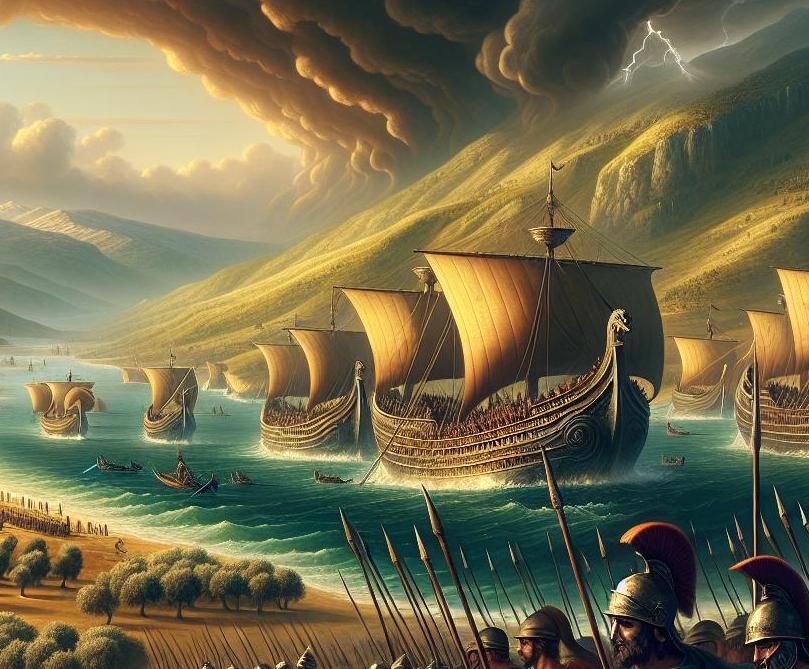Chapter 1 opens during the heart of the Classical period, a time when mighty empires held sway over vast territories, and mighty armies waged wars of unprecedented scale and brutality. The principal actors of this chapter are the two titans of their time: Rome, the growing republic of Italy, known for its disciplined legions and political acumen, and Carthage, the mercantile superpower of North Africa, boasting a formidable navy and vast wealth.
They are vying not just for dominance over the Mediterranean, but also for the very survival of their civilizations. Our initial discourses unfold in the preamble of this great conflict with both societies unaware that their futures are intertwined dramatically. The drama of the Punic Wars begins quietly enough, almost trivially, over a minor disagreement about the control of Sicily. The island, rich in agricultural and maritime resources, was previously under the control of powerful Carthage.
Now Rome, her ambitions ignited, sought to influence the affairs of the island. Carthage, with its strong naval presence and established trade networks, would not yield so easily. The stage was set for a conflict that would shape the destiny of these two great civilizations and change the course of history. Neither power could have foreseen the devastating wars that lay ahead, the heroism that would be displayed, or even the strategies and tactics that would echo in military philosophy centuries later, all borne out of this seemingly inconsequential dispute.
This was the beginning of the Punic Wars, a series of events that would define an era and herald the rise of an empire.
 |
 |

